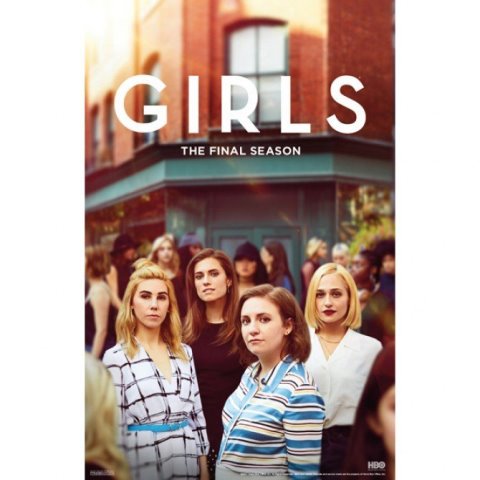The following contains spoilers about the “Girls” series finale.
“Girls” isn’t one of those shows that readily lends itself to a big finish. Having followed its key characters as they drunkenly stumbled (sometimes literally, usually not) through their 20s, any ending seemed destined to represent merely a moment in time, what with so many years and so much self-absorption ahead of them.
Nevertheless, the penultimate episode rather hastily sought to move the ball forward, as has the entire season, beginning with Hannah (Lena Dunham) and her unplanned pregnancy. Not only did Shoshanna (Zosia Mamet) get engaged, but Hannah was offered a job at an out-of-town university, before engaging in impromptu fence mending with estranged friend Jessa (Jemima Kirke), who had become involved with Hannah’s ex Adam (Adam Driver).
That set the stage for Sunday’s final half-hour, which, like the episodes that preceded it, felt a bit too on the nose — too neat and tidy by “Girls'” normally messy standards.
Hannah’s bosom pal Marnie (Allison Williams) volunteered to help raise her baby, named Grover, and Hannah somewhat grudgingly accepted. Flash forward five months, and Hannah is every bit as neurotic about motherhood as one might imagine, seemingly determined to drive away Marnie and subsequently Hannah’s mom Loreen (Becky Ann Baker), who shows up offering emotional support.
Loreen gives her daughter a stern talking to, but that only sends her storming off into the night, where she has a too-convenient encounter with a whiny teenage girl who needs a tongue-lashing of her own. The exchange brings Hannah back home, where Grover — after refusing to breast feed — finally latches on, providing a ray of hope that the series and its protagonist, a self-proclaimed “quitter,” haven’t quite earned.
Written by the show’s producing trio of Dunham, Jenni Konner (who also directed) and Judd Apatow, the finale narrowed its focus, to the point where everyone else’s future will remain a source of mystery.
“I guess it’s time for me to start figuring out what’s next,” Marnie says to Loreen, which, frankly, is a line any one of the key players could have uttered in season one.
Although never a huge fan of “Girls,” the HBO series deserves some of the credit it has received for shining an unflinching, unapologetic window on this confusing stage of life, and daring to depict its characters warts and all.
Indeed, an early debate surrounding the series hinged on likability — on whether it was OK, as executive producer Judd Apatow once put it, to get caught up in these characters’ lives without liking them.
Frankly, that discussion somewhat missed — or really, oversimplified — the point, which wasn’t so much about liking them as being incentivized to care about the problems and issues over which they obsessed. That included the finale, where Hannah railed to her mother, “No one understands!” — a familiar sentiment, having seen her treat every youthful setback as if she was the first person to face it.
Like its spiritual matriarch “Sex and the City,” there will almost surely be an eventual temptation to revisit “Girls,” to see where Hannah and the gang wind up several years removed. (The time lapse will provide a pretty good referendum on how well everyone’s post-show career is going.)
For now, though, Sunday’s inconclusive finale felt like about as much closure as “Girls” could reasonably offer — giving Hannah a taste of this new stage of adulthood, without much sense of the other crises that will inevitably follow.
Mostly, the ending played more like a pause in the conversation than a period, much less an exclamation point. Still, to paraphrase something that Hannah said near the show’s outset, if “Girls” wasn’t the voice of its generation, it was, at least, a voice.
